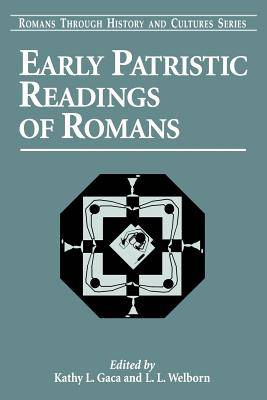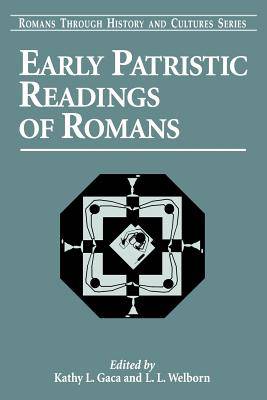
Je cadeautjes zeker op tijd in huis hebben voor de feestdagen? Kom langs in onze winkels en vind het perfecte geschenk!
- Afhalen na 1 uur in een winkel met voorraad
- Gratis thuislevering in België vanaf € 30
- Ruim aanbod met 7 miljoen producten
Je cadeautjes zeker op tijd in huis hebben voor de feestdagen? Kom langs in onze winkels en vind het perfecte geschenk!
- Afhalen na 1 uur in een winkel met voorraad
- Gratis thuislevering in België vanaf € 30
- Ruim aanbod met 7 miljoen producten
Zoeken
Early Patristic Readings of Romans
€ 99,95
+ 199 punten
Omschrijving
This volume traces the earliest receptions of Paul's Letter to the Romans, seeking to elucidate their hermeneutical strategies as they endorse, explain, construct, and rework Romans as a normative authority. These early patristic readings of Romans by Clement of Alexandria, Irenaeus, Origen, and others are pivotal. Long before Augustine and Luther they set formative interpretive principles upon which is built the imposing yet diverse edifice of subsequent interpretations and uses of Romans. By the end of the second century CE, the letters of Paul had established themselves as authoritative bearers of divine revelation. Yet, the task of tracing the earliest receptions of Paul's Letter to the Romans is challenging, because the thought world of the early Christians is remote, molten, largely oral, and as such hard to trace. The essays in this volume rise to the challenge by explicating significant aspects of Paul's reception among early Christian readers. They ask: How did these readers construct Paul's view of pagan and Christian relations? of the Gentiles? Of Jewish salvation? Of faith? Of resurrection? Of Christian Platonist principles? Contributors to this volume demonstrate specific ways in which Romans was appropriated to define the philosophy of Christian Platonism, a development which has had an enduring impact upon the creation of a Christian paideia.
Specificaties
Betrokkenen
- Uitgeverij:
Inhoud
- Aantal bladzijden:
- 256
- Taal:
- Engels
- Reeks:
Eigenschappen
- Productcode (EAN):
- 9780567029317
- Verschijningsdatum:
- 3/01/2006
- Uitvoering:
- Paperback
- Formaat:
- Trade paperback (VS)
- Afmetingen:
- 152 mm x 229 mm
- Gewicht:
- 371 g

Alleen bij Standaard Boekhandel
+ 199 punten op je klantenkaart van Standaard Boekhandel
Beoordelingen
We publiceren alleen reviews die voldoen aan de voorwaarden voor reviews. Bekijk onze voorwaarden voor reviews.








